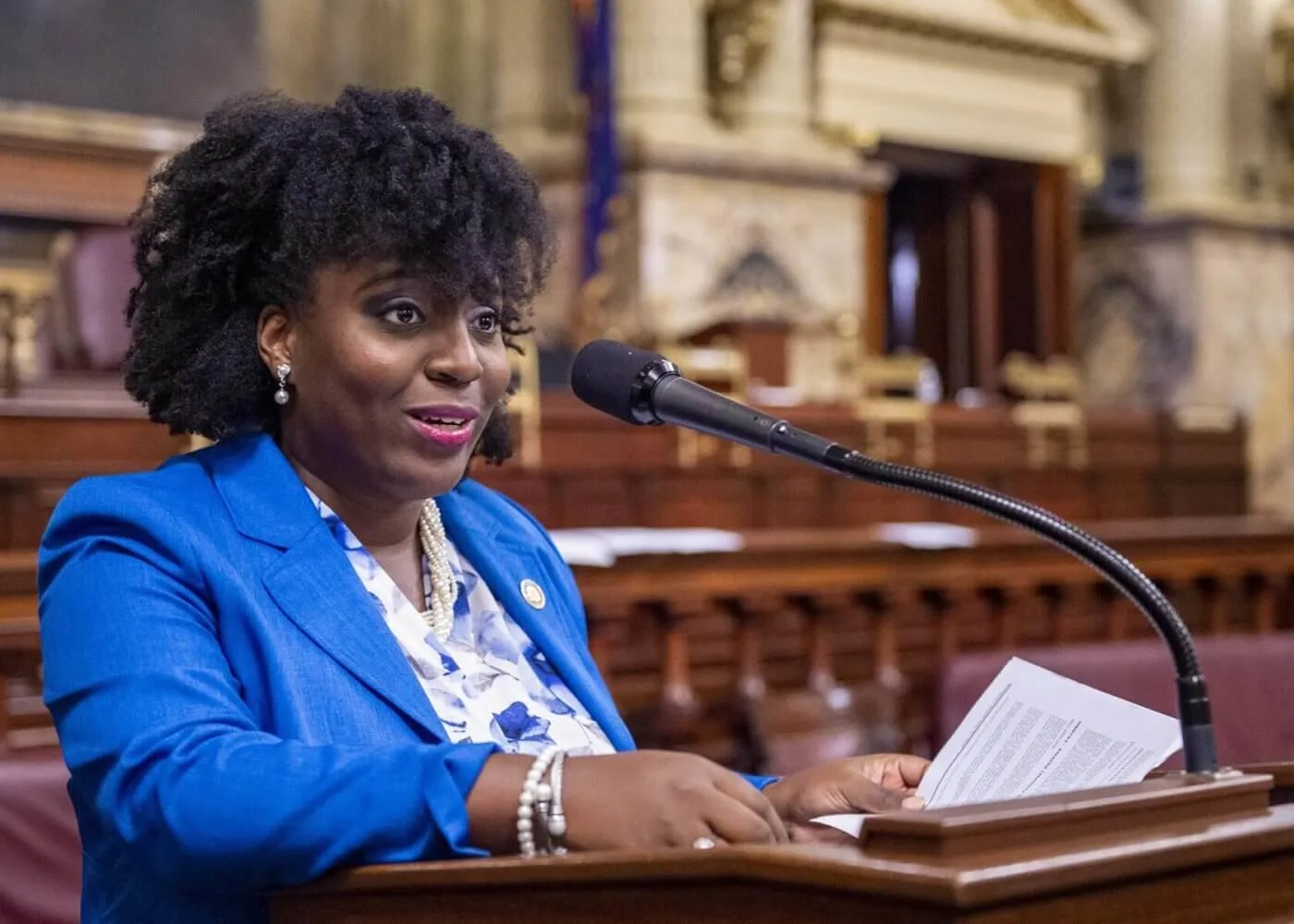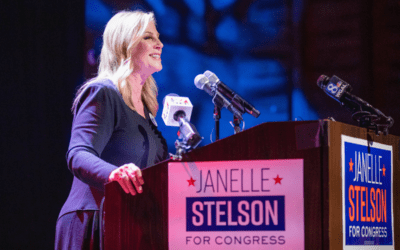
Rep. Joanna McClinton, D-Philadelphia (Courtesy PA House of Representatives)
While PA Republicans continue to amplify Trump’s ‘Big Lie,’ state Rep. Joanna McClinton is proposing a voter bill to fortify the election process for all.
On the anniversary of the attack on the US Capitol, state Rep. Joanna McClinton has introduced legislation to defend democracy by making voting safer and easier for Pennsylvanians.
“The alarming images from last January’s siege on the U.S. Capitol will forever be burned in our memories and were the direct result of lies and rhetoric still being spewed by some who cannot accept the results of the 2020 election more than a year later, even after investigations found no fraud occurred,” McClinton (D-Philadelphia) said in a news release. “The fact is the 2020 election was safe, free, fair and secure. My legislation works to build on our progress to ensure every voice is heard and every vote is counted.”
What is McClinton’s Proposal?
McClinton named House Bill 2090 the K. Leroy Irvis Voting Rights Protection Act in honor of the only African American to serve as speaker of the Pennsylvania House.
Irvis (D-Allegheny) first was elected state representative in 1958, and was reelected to 14 successive terms. During his time in office, he sponsored legislation to address civil rights, education, and mental health issues.
House Bill 2090 would:
- Invest $7 million to upgrade the voting system and switch from paper to electronic poll books
- Change voter eligibility requirements to allow Pennsylvanians to pre-register at age 16 and vote in a primary election at age 17 if they will be 18 for the general election
- Allow registered voters to vote in-person starting 17 days before an election
- Allow county elections officials to start pre-canvassing ballots 21 days before an election
- Allow a voter to request a mail-in ballot in person up until 5 p.m. the day before an election
- Require mail-in ballot envelopes to have a barcode that can be used to track mail-in ballots.
- Require more ballot boxes in more populated areas and near public universities and community colleges with more than 10,000 students
- Allow voters to drop off mail-in ballots for others in their household
- Duplicate mail-in ballots that are damaged or defective in some way that prevents them from being scanned by machine, so the vote can still be counted
- Allow voters to recast an absentee or mail-in ballot up to six days after an election if they filled out the ballot incorrectly or it could not be counted due to an error.
Where Did Distrust in the 2020 Election Come From?
Before the election, then-President Donald Trump said he wouldn’t accept the results if he lost. He claimed that voting by mail wasn’t secure, although he voted by mail in Florida.
Trump’s biggest supporters believed him without question and spread lies like wildfire.
The ballots counted on Election Day showed Trump had won the election, but several states, including Pennsylvania, still had hundreds of thousands of absentee and mail-in ballots to count. Election officials in Pennsylvania were not allowed to start counting mail-in ballots until Election Day, so it took several days to finish the count.
When the final tally showed that Biden had won, 99 lawmakers from Pennsylvania sought to overturn the election results, even though they had won re-election in the same election. Some of them continue to challenge the election results, and are seeking the personal information of 9 million Pennsylvania voters for a “forensic investigation” of the election.
State legislators have debated a variety of changes to Pennsylvania’s election laws to prevent another year like 2020, but McClinton says Republican-supported election reform bills would reverse the progress Pennsylvania has made in strengthening the process.
“My proposal is not about erecting barriers, accessing sensitive information from Pennsylvanians, or suppressing voter turnout – specifically in our Black and Brown communities,” McClinton said. “It is about investing in ways to strengthen our election process that benefits everyone.”

For Rep. Susan Wild, supporting PA families includes reproductive rights and much more
Rep. Susan Wild wants to be very clear with Pennsylvanians: Donald Trump is committed to taking away women’s reproductive freedom, but he is not...

School districts working with anti-LGBTQ groups can cost your kids’ schools millions
Parents across South Central Pennsylvania are worried about the potential financial impacts working with anti-LGBTQ groups may have on their school...

VIDEO: Trump distances himself from his anti-abortion views
Donald Trump appeared on WGAL on Tuesday and continued to distance himself from his anti-abortion views claiming that reproductive rights are now a...

VIDEO: Community pushback gets school board to rescind decision on denying gay actor’s visit
Cumberland Valley School Board offered a public apology and voted to reinstate Maulik Pancholy as a guest speaker a week after the board voted to...

VIDEO: Project 2025 brings nuclear armageddon back into vogue
Project 2025 is a titanic document, with plans ranging from cutting half of all government employees to targeting reproductive rights on a scale...




